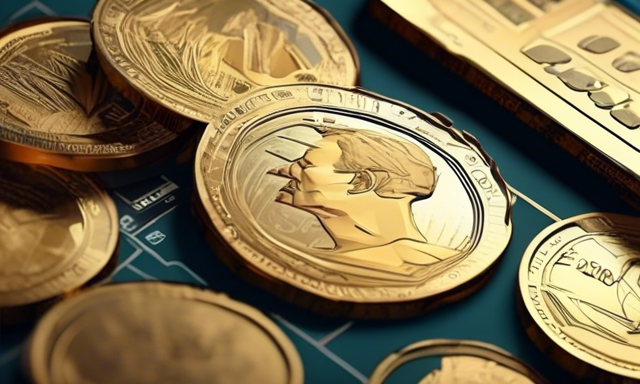Welcome to Real Vision: Your Guide to Understanding the Impact of Deficit Spending
At Real Vision, we provide you with the necessary knowledge and tools to navigate the complexities of the financial world. Our experts analyze the implications of high deficit spending and its potential effects on the economy. We examine the historical context of deficit spending and its relationship to recessions, offering insight into the current economic landscape. Join us as we explore the impact of deficit spending on the economy and what it means for the future.
The History of Deficit Spending and Recessions 📉
Deficit spending has been a topic of debate for economists and policymakers for decades. Understanding the historical context of deficit spending and its correlation to recessions is crucial in predicting future economic trends. Here are some key points to consider:
- Deficit spending in the United States reached a high point during the Gulf War in 1991, with a deficit of 3.5% of GDP.
- The recession that followed in 1991 was triggered by an exogenous shock – a massive spike in oil prices.
- High deficit spending alone is not enough to cause a recession; external factors are often required to push the economy into a downturn.
The Current Economic Landscape and Deficit Spending 🌐
As we enter this year, the economy appears to be in a ‘soft landing’ phase, with no immediate signs of a recession on the horizon. Despite high levels of deficit spending, there are several factors that suggest a stable economic outlook:
- No significant events have occurred to disrupt the current economic trajectory.
- While inflation may be a concern in the future, the Federal Reserve has the ability to adjust monetary policy to mitigate potential risks.
- If the Fed maintains a balanced approach and responds effectively to changing economic conditions, a ‘soft landing’ scenario is plausible.
Looking Ahead: Potential Risks and Mitigation Strategies ⚠️
While the current economic environment may seem stable, there are underlying risks associated with high deficit spending that could impact future economic outcomes. It is essential to be aware of these potential risks and consider mitigation strategies to address them:
- Inflation could become a problem if deficit spending continues unchecked over the long term.
- External factors, such as geopolitical events or natural disasters, could pose unexpected challenges to the economy.
- The Federal Reserve’s ability to respond effectively to changing economic conditions will be crucial in maintaining economic stability.
Hot Take: Why a Recession is Unlikely – High Deficit Spending 📈
Despite concerns about high deficit spending, the current economic environment suggests that a recession is unlikely in the near term. By understanding the historical context of deficit spending and its relationship to recessions, we can better assess the potential risks and opportunities facing the economy. With the right mix of monetary policy and economic factors, a ‘soft landing’ scenario remains a realistic outcome. Join us at Real Vision as we continue to explore the impact of deficit spending on the economy and what it means for investors and policymakers.





 By
By
 By
By
 By
By
 By
By
 By
By
 By
By